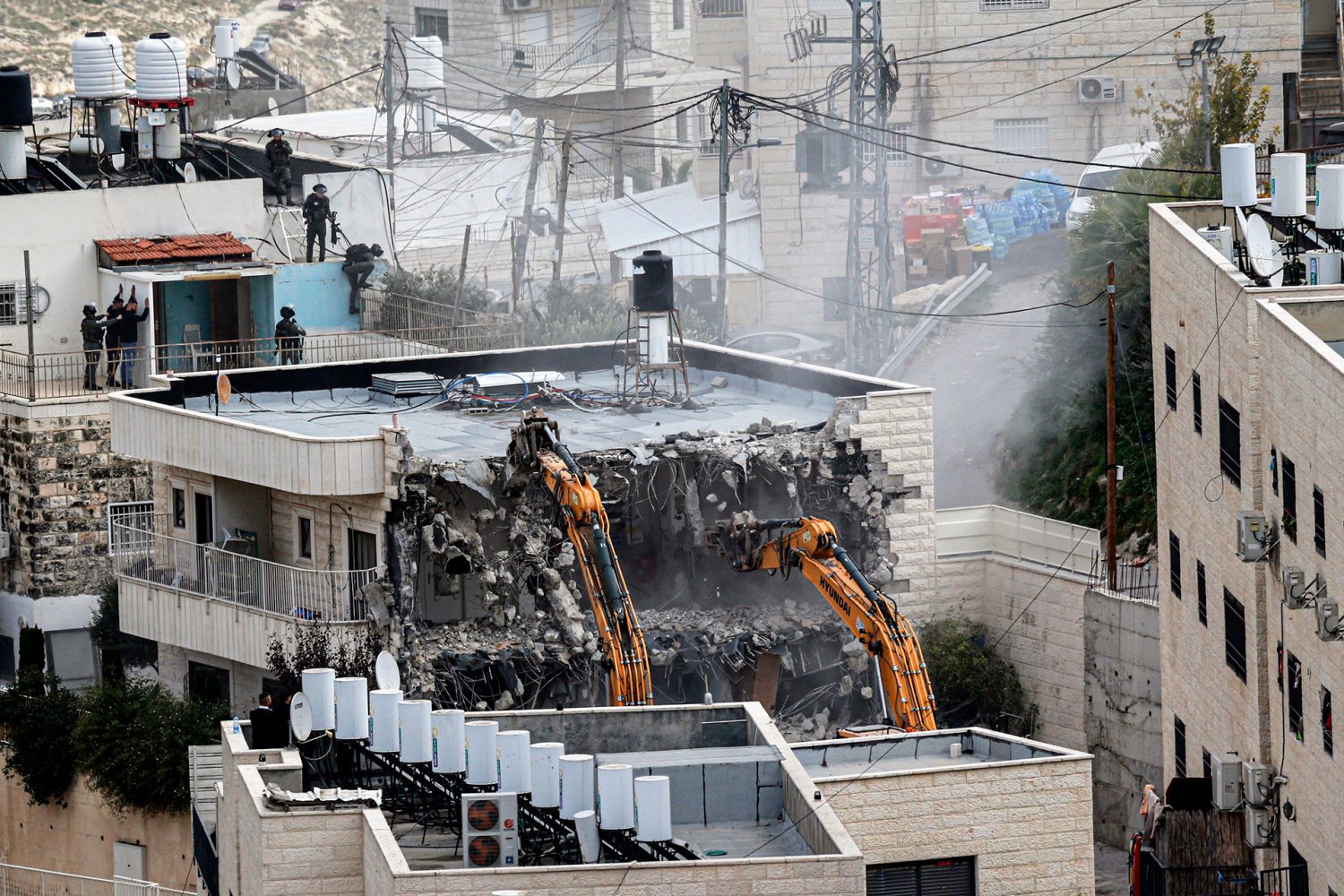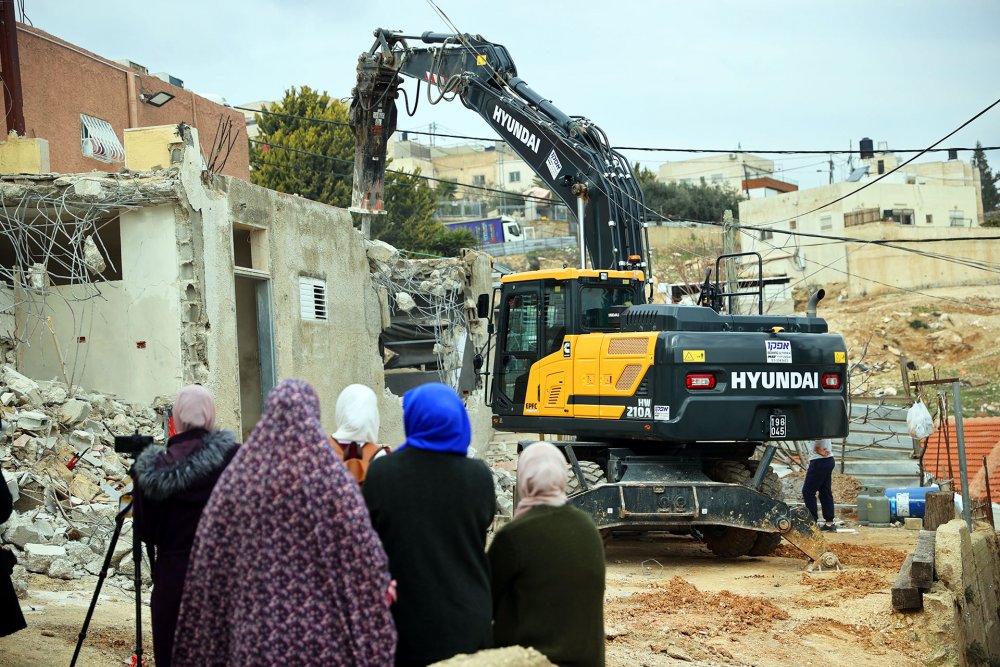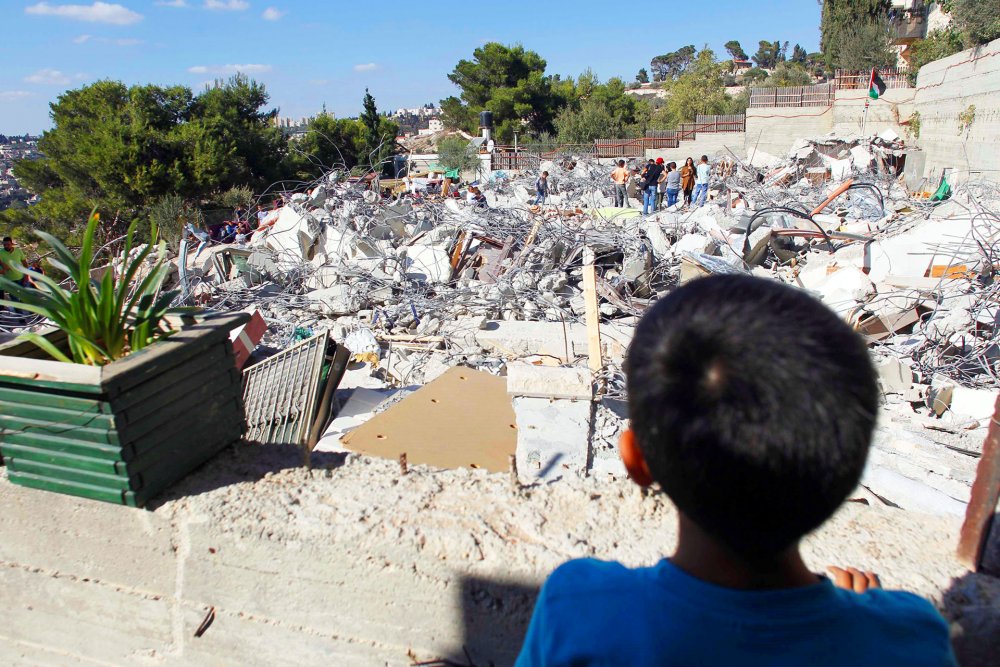Ahmed concluded his conversation while looking at the piles of cement and iron that were once the home that he lived in with his children. “What I fear most is that my children will hate me because I destroyed their lives and dreams with the same hands that built the house and their dreams,” he said.
The father of four put his hands together and said: “God is sufficient for us, and He is the best disposer of affairs.” This phrase is usually uttered by Muslims in the most extreme cases of helplessness where one is unable to do anything to change the circumstances. The reality is that Ahmed along with tens of thousands of Jerusalemites live in a city which is no longer, according to international engineering standards, a comprehensive and spacious city. Instead, it has become comprised of isolated neighborhoods divided by wide streets and some settlement outposts here and there.
Head of the Jerusalem Center for Social and Economic Rights (JCSER) Ziad Hammouri told Jerusalem Story that since October 2023, more than 120 facilities have been destroyed through self-demolition, including 36 residential apartments and 34 nonresidential facilities, on the pretext of the owner not having obtained the necessary building permits. The restrictive and unfair Israeli planning system makes obtaining building permits nearly impossible for Palestinians in Jerusalem. No more than 13 percent of the area of East Jerusalem is allocated for Palestinian construction, but most of this area is already inhabited.2
Additionally, Palestinians who build their homes without attaining permits are at risk, not only of demolition but also other penalties, such as fines levied on top of the steep costs of applying for a building permit. About one-third of Palestinian homes in East Jerusalem don’t have Israeli-issued building permits, which places more than 100,000 Palestinians at risk of displacement.3
Ziad described the self-demolition process as extremely destructive for Palestinian families. “The invention of the self-demolition penalty is the most difficult penalty that causes destructive psychological effects on the father who works hard throughout his life to provide shelter for his family and a safe haven for his children,” he said.4
A father appears to his family as a criminal after he demolishes their home and displaces his family with his own hands, escaping the economic and financial problems that could result from the taxes that will arise from having the Israeli authorities demolish the home instead. Children will not understand that their father avoided paying high taxes and fines and was forced to demolish his home for specific reasons. Children will likely think that their father erased their childhood memories and destroyed their personal space, such as their bedroom and toys. The self-demolition process may also greatly impact the father himself, who will continue to suffer until the final days of his life.



